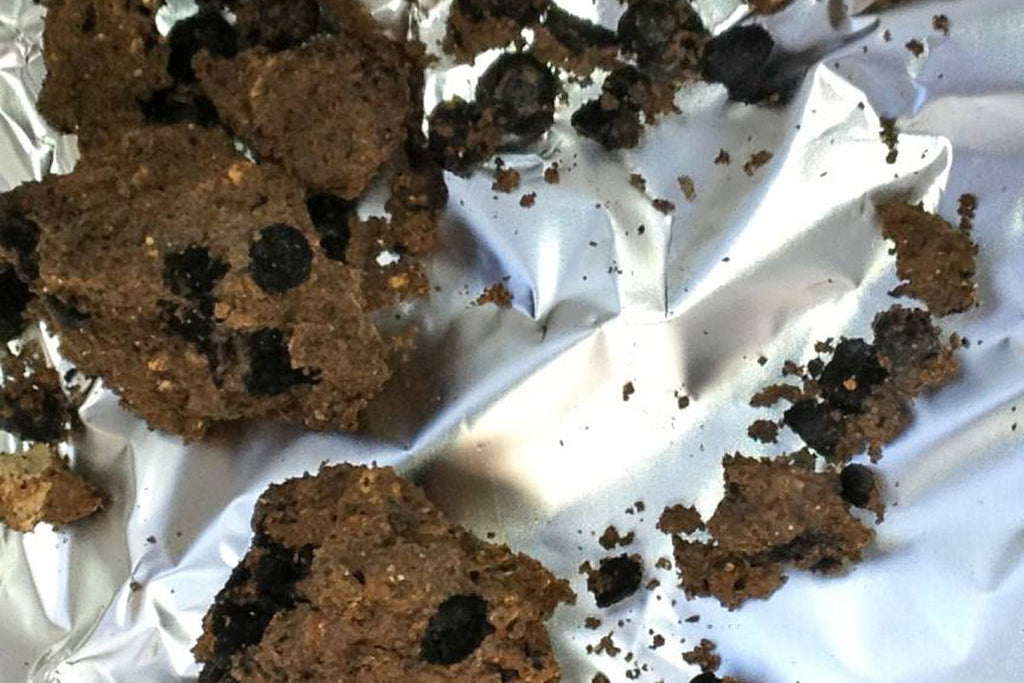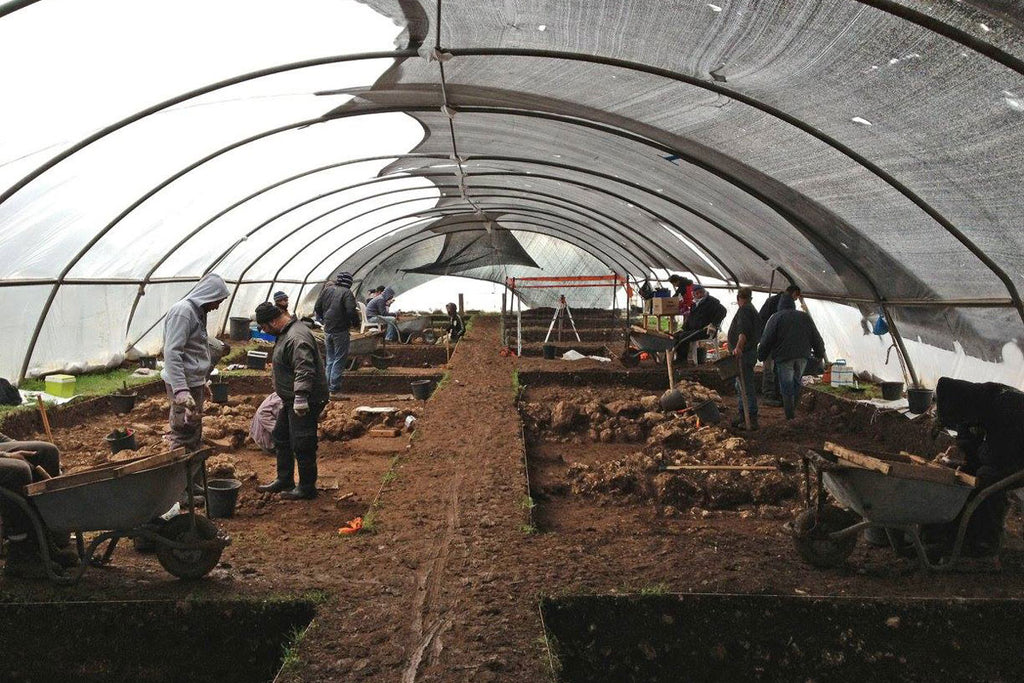- Shop
- Recipes
- About
- Sign in
-
Shop
-
Recipes
-
About
by Nick Saltmarsh December 16, 2015
| Israeli archaeologists claim to have dug up the world's oldest fava beans, suggesting that beans may have been the very first farmed crop. Does this mean the paleo diet is old hat and neo(lithic) eating the new thing? |
They're petrified and they're ancient. Are these the world’s oldest fava bean seeds?

Ancient fava beans from archaeological excavation (photo Israel Antiquities Authority)
An archeological dig in Israel has unearthed a plentiful cache of fava seeds dating back 10,000 years - of a uniform size, suggesting they were harvested at the same time, methodically husked and carefully stored to ensure future crops and year-round food as well as tomorrow’s supper.
It’s cereals we associate with the agricultural revolution, but the multitude of fava seeds at Neolithic sites in Galilee suggest that at one point beans were our ancestors’ staple diet. “It seems that in the region we examined (west of the Jordan River), it was the legumes, full of flavour and protein, which were actually the first species to be domesticated,” say researchers.

Site of fava bean excavations in Galilee, Israel (photo Israel Antiquities Authority)
Presumably they were cooking up something like ful medames, the dish of fava beans with oil and cumin (plus herbs, lemon, onion, chili...) eaten from Somalia and Egypt to Saudi Arabia - as well as at Yotam Ottolenghi’s table. Here’s our recipe and a cheat's 15-minute version using our Baked British (Fava) Beans.
The importance of beans to early humans sheds interesting light on current enthusiasm for the “paleo” diet, which proposes that modern misery can be avoided along with all those modern inventions like refined sugar, processed food, cereals, dairy, potatoes and legumes. Paleo tends to mean plenty of meat - but many point out that the stone age diet was presumably much heavier on plants and berries than on mammoth.
We at the Bean Store were fascinated by an article in the Huffington Post the other day on just this subject, interrogating the proposal that we should be eating what we evolved to eat rather than what we’ve recently developed in fields, kitchens and laboratories. It points out that unlike our brains, hands and immune systems, our guts are pretty similar to our ape and monkey cousins, “and for most of the last twenty million years of the evolution of our bodies, through most of the big changes, we were eating fruit, nuts, leaves and the occasional bit of insect, frog, bird or mouse”.
“Go ahead and pick your favourite time in the past, and eat like they did back then,” says author (and bean-lover!) Rob Dunn. “I’ll choose to eat fruits and nuts (supplemented with some of the great beans produced by the agricultural revolution). Maybe you are ‘new school’ and will choose to eat only the meat of giant sloths and mastodons, in doing so, ignoring your bacteria. Or maybe you are really paleo and you are going to focus on insects, which might favour other bacteria (able to break down insect chitin). Any of these possibilities are better than the average modern diet.”
January 23, 2026
Hodmedod's pop-up Shop! will be open again on Saturday 7th February alongside Barleybird's annual Seed Swap.
August 14, 2025
Hodmedod co-founder Josiah Meldrum describes how Hodmedod emerged from the question of whether we can reliably and sustainably feed ourselves.
August 13, 2025
Our new organic naked fava beans and yellow peas can be used just like split beans and peas - there are just a few intact whole pulses that will generally split in half when soaked and cooked. But why are some of our beans & peas now naked?
Get in touch at hello@hodmedods.co.uk or 01986 467567
Things sometimes go wrong but we'll always do our best to put it right. Please contact us to let us know if there's any problem with an order.
For further details please see our Terms of Service, Returns, Refunds and Exchanges Policy and Privacy Policy.
Sign up for our latest news, recipes, offers & more…
By signing up, you agree to receive marketing emails. Please see our Privacy Policy for more details.
Registered in England and Wales as Hodmedod Ltd, The Studios, London Road, Brampton, Beccles, Suffolk, NR34 8DQ, UK; company number 08151811.
